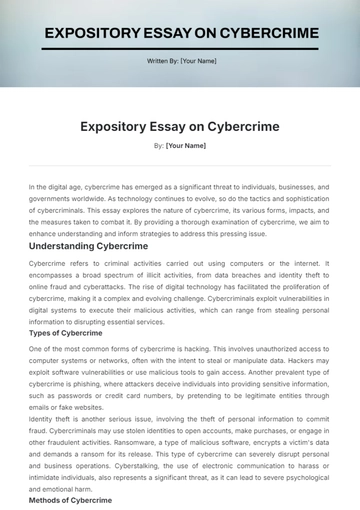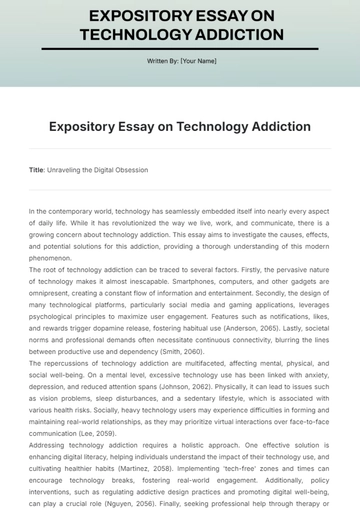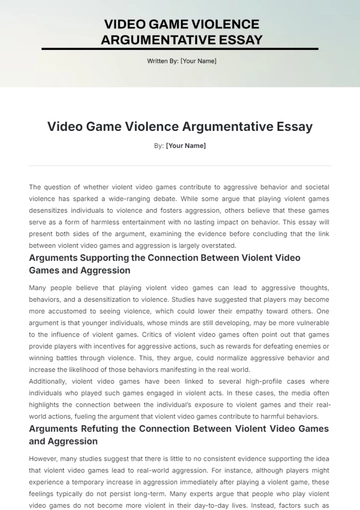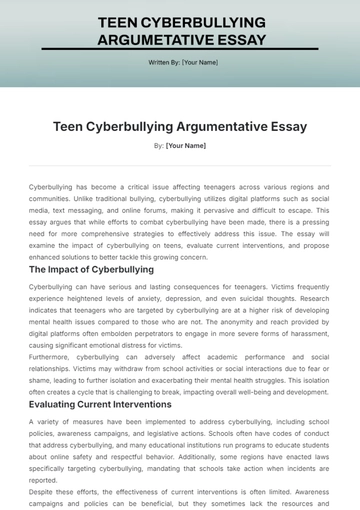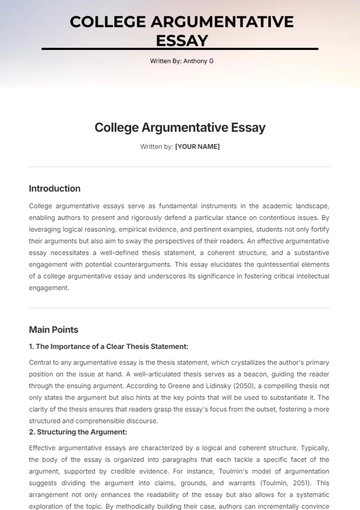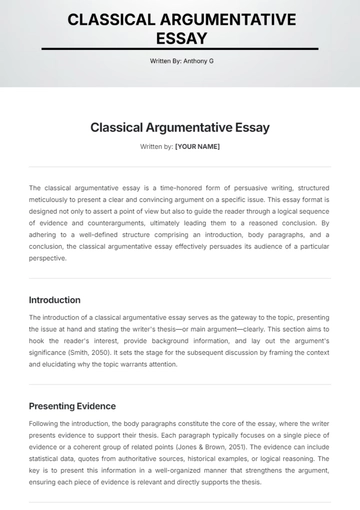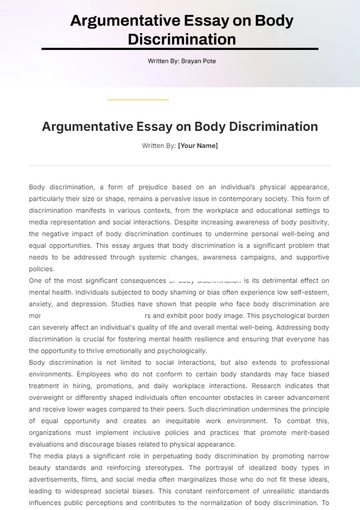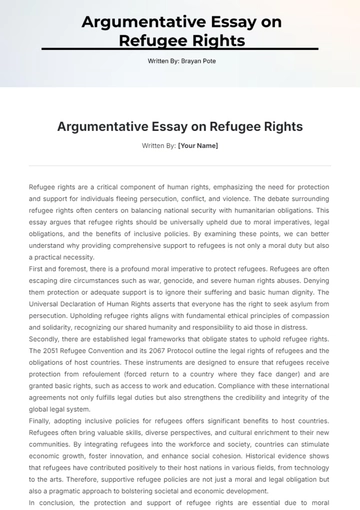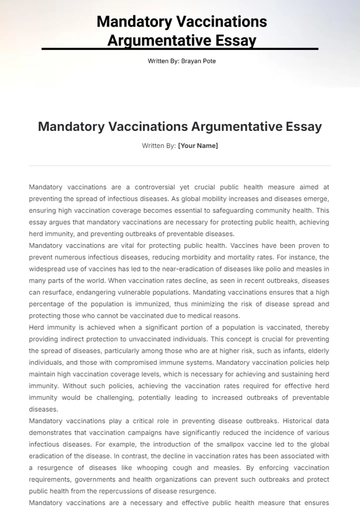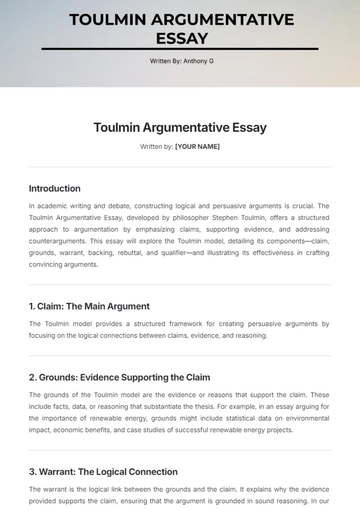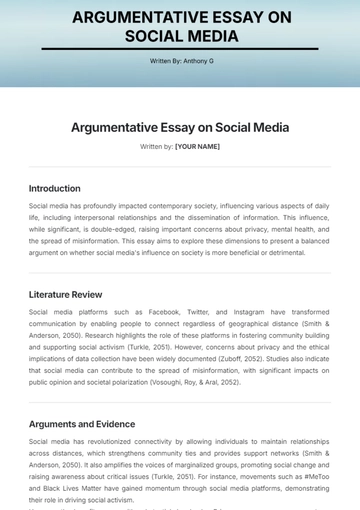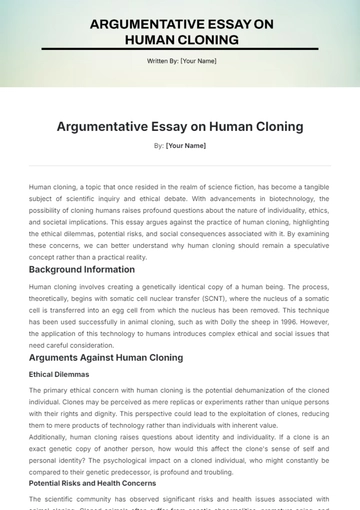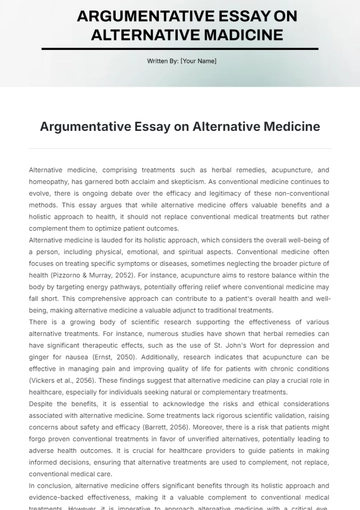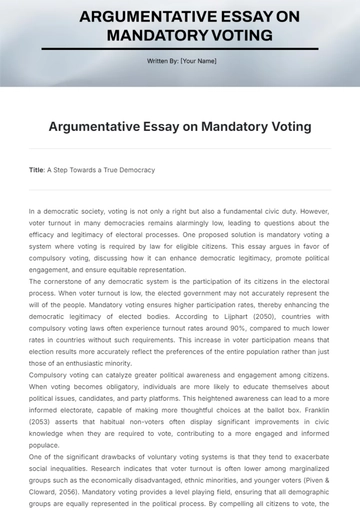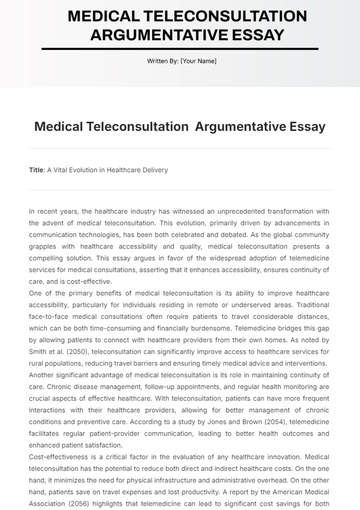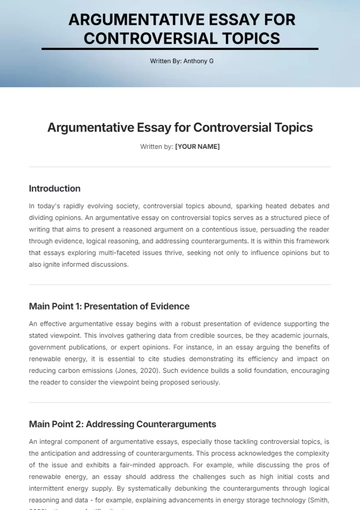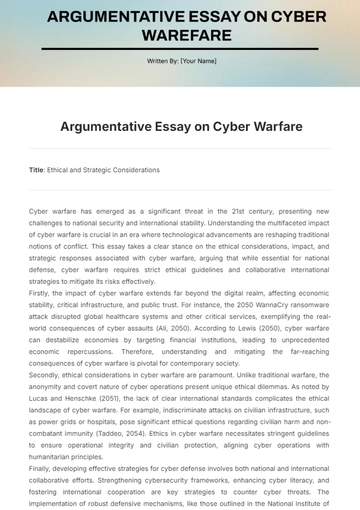Free Surveillance Technology Argumentative Essay
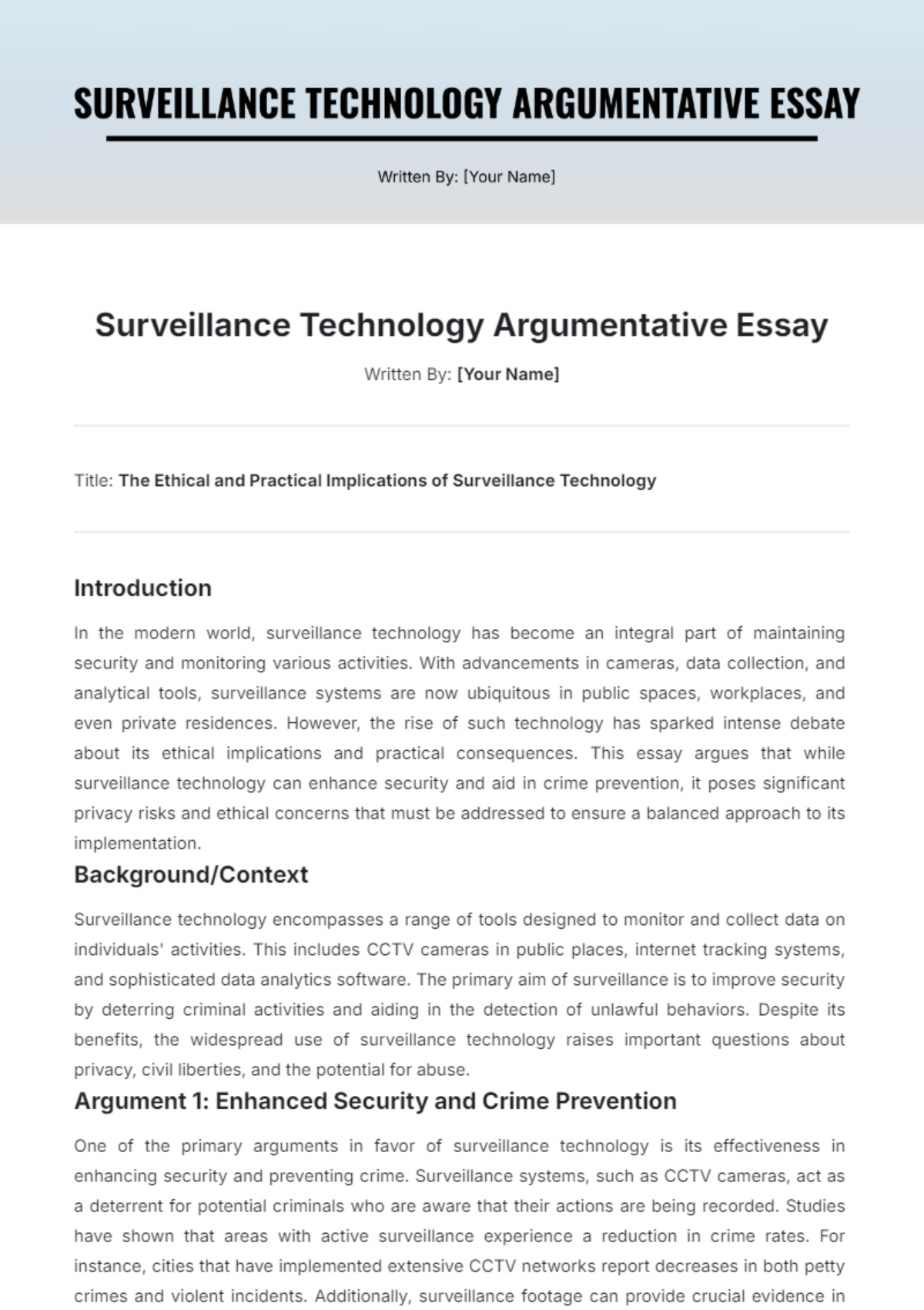
Written By: [Your Name]
Title: The Ethical and Practical Implications of Surveillance Technology
Introduction
In the modern world, surveillance technology has become an integral part of maintaining security and monitoring various activities. With advancements in cameras, data collection, and analytical tools, surveillance systems are now ubiquitous in public spaces, workplaces, and even private residences. However, the rise of such technology has sparked intense debate about its ethical implications and practical consequences. This essay argues that while surveillance technology can enhance security and aid in crime prevention, it poses significant privacy risks and ethical concerns that must be addressed to ensure a balanced approach to its implementation.
Background/Context
Surveillance technology encompasses a range of tools designed to monitor and collect data on individuals' activities. This includes CCTV cameras in public places, internet tracking systems, and sophisticated data analytics software. The primary aim of surveillance is to improve security by deterring criminal activities and aiding in the detection of unlawful behaviors. Despite its benefits, the widespread use of surveillance technology raises important questions about privacy, civil liberties, and the potential for abuse.
Argument 1: Enhanced Security and Crime Prevention
One of the primary arguments in favor of surveillance technology is its effectiveness in enhancing security and preventing crime. Surveillance systems, such as CCTV cameras, act as a deterrent for potential criminals who are aware that their actions are being recorded. Studies have shown that areas with active surveillance experience a reduction in crime rates. For instance, cities that have implemented extensive CCTV networks report decreases in both petty crimes and violent incidents. Additionally, surveillance footage can provide crucial evidence in investigations, leading to higher rates of criminal apprehension and conviction. The use of surveillance technology in this context underscores its role in creating safer communities and promoting public order.
Argument 2: Risks to Privacy and Civil Liberties
Conversely, the deployment of surveillance technology poses significant risks to individual privacy and civil liberties. Continuous monitoring can lead to a feeling of being constantly watched, which may infringe on personal freedoms and autonomy. Furthermore, the accumulation of vast amounts of data on individuals raises concerns about data security and the potential for misuse. Unauthorized access to surveillance data or its use for purposes beyond the original intent, such as profiling or discrimination, can undermine trust and erode democratic values. The balance between security and privacy becomes crucial as surveillance systems become more pervasive, making it essential to implement stringent regulations and safeguards to protect individuals' rights.
Counterarguments
Critics of surveillance technology argue that its benefits outweigh its drawbacks, emphasizing that effective security measures are necessary for the safety of society. They assert that the potential for privacy invasion is mitigated by existing regulations and oversight mechanisms. However, these counterarguments often overlook the potential for systemic abuses and the cumulative effect of surveillance on personal freedoms. Even with regulations in place, the sheer volume of data collected and the potential for its misuse remain pressing concerns. Addressing these issues requires ongoing vigilance and a commitment to ensuring that surveillance practices do not compromise fundamental rights.
Conclusion
Surveillance technology undeniably plays a crucial role in enhancing security and preventing crime. However, its widespread use also raises significant privacy and ethical concerns that must be carefully managed. To achieve a balance between security and individual rights, it is essential to implement robust regulations that safeguard privacy and prevent misuse of surveillance data. By addressing these concerns proactively, society can harness the benefits of surveillance technology while preserving the principles of personal freedom and privacy. A nuanced approach to surveillance, coupled with transparent practices and strong oversight, is key to ensuring that technological advancements contribute positively to societal well-being without undermining core democratic values.
- 100% Customizable, free editor
- Access 1 Million+ Templates, photo’s & graphics
- Download or share as a template
- Click and replace photos, graphics, text, backgrounds
- Resize, crop, AI write & more
- Access advanced editor
Create compelling arguments on surveillance technology with ease using our Surveillance Technology Argumentative Essay Template from Template.net. This editable and customizable template allows you to craft persuasive essays effortlessly. Fully editable in our AI Editor Tool, you can personalize your content to suit your needs, ensuring a professional and polished final piece.





